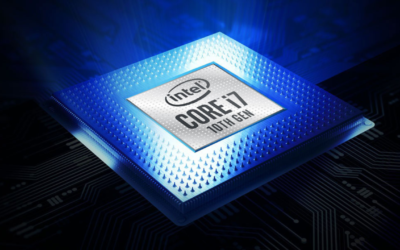What are The Top BSc Degree Courses Universities in India?

In recent years, India has witnessed a significant surge in the demand for undergraduate degrees, especially in the field of Science. A Bachelor of Science (BSc) degree remains a popular choice among students aspiring for careers in diverse scientific disciplines. Choosing the right university plays a crucial role in shaping a student’s academic and professional journey. In this blog, we delve into some of the top BSc degree courses and universities in India, highlighting their distinctive features, strengths, and opportunities they offer to students.
Importance of Choosing the Right BSc Degree Course
A BSc degree is typically a three-year undergraduate program that provides a solid foundation in various scientific domains Physics, Chemistry, Biology, Mathematics, Computer Science, and more specialized fields like Biotechnology, Environmental Science, and Statistics. The curriculum is designed to impart theoretical knowledge, practical skills. And analytical thinking essential for further academic pursuits or entry into the job market.
Choosing the right BSc course involves considering factors like faculty expertise, infrastructure, research opportunities, industry collaborations, and placement records. The reputation and ranking of the university also play a significant role in shaping the overall learning experience and career prospects of students.
Top BSc Degree Courses and Universities in India
BSc Physics
A BSc in Physics equips students with a deep understanding of fundamental principles governing the universe, along with analytical and problem-solving skills. Some of the top institutions offering BSc Physics in India include:
- Indian Institute of Science (IISc), Bangalore: Renowned for its research facilities and rigorous academic programs in Physics. It offers specialized courses and ample research opportunities under the guidance of esteemed faculty members.
- Indian Institutes of Technology (IITs): Institutions like IIT Bombay, IIT Delhi, IIT Madras, etc., are known for their strong emphasis on Physics education. They provide state-of-the-art laboratories, theoretical foundations, and practical exposure essential for a career in Physics.
The BSc Physics curriculum typically covers classical mechanics, quantum mechanics, electromagnetism, thermodynamics, optics, and mathematical methods in physics. Graduates can pursue careers in research, academia, engineering, and industries like aerospace, telecommunications, and electronics.
BSc Chemistry
Chemistry deals with the composition, structure, properties, and reactions of substances. A BSc in Chemistry provides students with a comprehensive understanding of chemical principles, laboratory techniques, and analytical skills. Top universities offering BSc Chemistry programs in India include:
- Indian Institute of Science (IISc), Bangalore: Offers specialized courses in Organic, Inorganic, Physical, and Analytical Chemistry. It emphasizes research and practical application of chemical principles.
- Indian Institutes of Technology (IITs): IIT Kharagpur, IIT Roorkee, and others are renowned for their Chemistry departments. They provide rigorous training in theoretical and experimental aspects of Chemistry, preparing students for careers in research and industry.
- Loyola College, Chennai: Known for its strong emphasis on Chemistry education, Loyola College offers a blend of theoretical knowledge and practical skills through its well-equipped laboratories and experienced faculty.
The BSc Chemistry curriculum typically includes organic chemistry, inorganic chemistry, physical chemistry, analytical chemistry, and biochemistry. Graduates can pursue careers in pharmaceuticals, chemical industries, environmental science, forensic science, and research laboratories.
BSc Mathematics
A BSc in Mathematics equips students with analytical thinking, problem-solving skills, and the ability to apply mathematical principles to various fields. Some top institutions offering BSc Mathematics programs in India include:
- Indian Statistical Institute (ISI), Kolkata: Renowned for its Mathematics program with a strong focus on both theoretical and applied mathematics. ISI offers specialized courses and research opportunities in areas like statistics, operations research, and theoretical computer science.
- Chennai Mathematical Institute (CMI): Known for its rigorous Mathematics curriculum, CMI provides a conducive environment for mathematical research and innovation. It offers courses in pure mathematics, applied mathematics, and theoretical computer science.
- St. Xavier’s College, Mumbai: Offers a comprehensive Mathematics program with a focus on foundational mathematics, applied mathematics, and statistics.
The BSc Mathematics curriculum typically covers calculus, algebra, differential equations, number theory, mathematical modeling, and computer programming. Graduates can pursue careers in academia, finance, data analysis, cryptography, computer science, and research institutions.
BSc Biology
A BSc in Biology offers students a comprehensive understanding of biological principles, ecological systems, genetics, and evolutionary biology. Top universities offering BSc Biology programs in India include:
- Christian Medical College (CMC), Vellore: Known for its Biology and Biotechnology programs, CMC offers specialized courses, practical training, and research opportunities in biomedical sciences.
- University of Delhi (DU): Colleges like Miranda House, Hindu College, and others under DU offer strong Biology programs with access to well-equipped laboratories, fieldwork opportunities, and esteemed faculty.
- Pune University: Offers a diverse range of Biology programs with specializations in microbiology, biotechnology, genetics, and environmental sciences. It emphasizes research and industry-relevant skills.
The BSc Biology curriculum typically includes cell biology, molecular biology, genetics, ecology, physiology, microbiology, and biotechnology. Graduates can pursue careers in healthcare, pharmaceuticals, biotechnology, environmental conservation, agriculture, and research institutions.
BSc Computer Science
Computer Science deals with the study of algorithms, data structures, programming languages, software development, and computer systems. An online bsc degree india provides students with technical skills, problem-solving abilities, and knowledge of emerging technologies. Top institutions offering BSc Computer Science programs in India include:
- Indian Institute of Technology (IIT) Bombay: Renowned for its Computer Science program with a strong focus on theoretical foundations, software engineering, artificial intelligence, and data science.
- Anna University, Chennai: Offers a comprehensive Computer Science curriculum with practical training, industry collaborations, and specialization options in areas like cybersecurity, machine learning, and cloud computing.
- Delhi University (DU): Colleges like Hansraj College, SRCC, and others under DU offer strong Computer Science courses with a blend of theoretical knowledge and practical applications. They provide opportunities for internships and placements.
The BSc Computer Science curriculum typically includes programming languages, data structures, algorithms, computer networks, database management systems, and software engineering. Graduates can pursue careers as software developers, system analysts, data scientists, cybersecurity experts, and IT consultants.
Benefits of a BSc degree
Wide Range of Specializations
BSc programs cover a diverse array of scientific disciplines, Physics, Chemistry, Biology, Mathematics, Computer Science, Environmental Science. And many more specialized fields such as Biotechnology, Statistics, and Geology. This variety allows students to choose a specialization that aligns with their interests and career aspirations, providing depth and focus in a specific area of study.
Strong Theoretical Foundation
BSc programs emphasize building a solid theoretical foundation in scientific principles, concepts, and methodologies. This foundational knowledge forms the basis for understanding complex phenomena, conducting research, and solving real-world problems within their respective fields.
Practical Skills Development
In addition to theoretical knowledge, BSc programs often incorporate practical components such as laboratory work, fieldwork, simulations, and projects. These hands-on experiences help students develop critical skills such as experimental design, data analysis, technical proficiency with scientific equipment, and problem-solving abilities.
Preparation for Further Education
Many BSc graduates pursue advanced degrees such as Master’s or PhD programs to deepen their expertise in a specific scientific discipline or to specialize further. A BSc degree provides a strong academic foundation and research experience that prepares students for success in higher education and academic research careers.
Career Opportunities
BSc graduates are in demand across various industries due to their specialized knowledge and analytical skills. They can pursue careers in fields such as healthcare, pharmaceuticals, biotechnology, environmental science, information technology, finance, research and development, education, government agencies, and more. The versatility of a BSc degree allows graduates to explore diverse career paths based on their interests and specialization.
Critical Thinking and Analytical Skills
BSc programs foster critical thinking, analytical reasoning, and problem-solving skills. Through coursework, research projects, and practical experiences, students learn to analyze complex data, evaluate evidence, and develop logical conclusions. These skills are not only essential for academic success but also for navigating challenges in the workplace and making informed decisions.
Contribution to Society
Many BSc disciplines, such as Environmental Science, Public Health, Agriculture, and Biotechnology, contribute directly to addressing global challenges such as climate change, disease prevention, food security, and sustainable development. BSc graduates have the opportunity to make meaningful contributions to society through their scientific knowledge and research initiatives.
Networking and Professional Development
BSc programs often provide opportunities for students to network with faculty, industry professionals, and fellow students through seminars, conferences, internships, and collaborative research projects. Building a professional network during the BSc program can open doors to job opportunities, mentorship, and lifelong connections in the scientific community.
Choosing the Right Online BSc Program
Accreditation and Reputation
The first and most crucial factor to consider when choosing an online BSc program is the accreditation and reputation of the institution offering it. Accreditation ensures that the program meets certain academic standards and is recognized by employers and other educational institutions. Look for programs accredited by reputable agencies or bodies such as:
- Regional Accreditation: In the United States, regional accreditation by bodies like the Higher Learning Commission (HLC) or Middle States Commission on Higher Education (MSCHE).
- Program-Specific Accreditation: For fields like engineering or nursing, look for programs accredited by bodies like ABET or CCNE respectively.
consider the reputation of the institution overall and specifically for the BSc program you’re interested in. Online programs offered by well-established universities with a history of quality education often carry more weight and credibility.
Curriculum and Specializations
Evaluate the curriculum offered by the online BSc program. Ensure it aligns with your academic interests and career goals. Some programs may offer specializations within the BSc degree, allowing you to focus on specific areas of interest such as:
- Computer Science: Specializations in cybersecurity, data science, or software engineering.
- Business Administration: Concentrations in marketing, finance, or entrepreneurship.
- Healthcare: Tracks in nursing, healthcare administration, or public health.
A robust curriculum should provide a balance of theoretical knowledge and practical skills relevant to your chosen field. Look for programs that integrate hands-on experiences, virtual labs, or internship opportunities to enhance learning outcomes.
Faculty and Student Support
Research the qualifications and experience of faculty members who will be teaching in the online BSc program. Faculty expertise plays a crucial role in delivering quality education and providing mentorship to students. Look for programs where faculty members have relevant industry experience, research credentials, or a strong academic background.
inquire about the level of student support services available. Online programs should provide adequate support through virtual office hours, tutoring services, academic advising, and technical support to ensure a smooth learning experience.
Technological Infrastructure and Learning Tools
Effective online learning requires robust technological infrastructure and access to modern learning tools. Investigate the online platform used for course delivery, ease of navigation, and availability of multimedia resources such as recorded lectures, interactive simulations, and digital libraries.
Ensure that the online platform is user-friendly and supports collaboration among students through discussion forums, group projects, and virtual study groups. Look for programs that utilize learning management systems (LMS) with mobile compatibility, allowing you to access course materials on the go.
Flexibility and Schedule
One of the primary advantages of choosing an online BSc program is flexibility in terms of schedule and location. Evaluate whether the program offers asynchronous learning options. Allowing you to study at your own pace and balance your studies with work or other commitments.
Consider the format of course delivery (e.g., live sessions, pre-recorded lectures) and how it aligns with your preferred learning style. Some programs may also offer accelerated or part-time options, allowing you to complete the degree at a pace that suits your needs.
Cost and Financial Aid Options
Compare the tuition costs of different online BSc programs and consider your financial situation. Online programs may vary in cost depending on the institution, program duration, and residency requirements.
inquire about available financial aid, scholarships, or tuition reimbursement programs that could help offset the cost of your education. Some employers may offer tuition assistance for employees pursuing higher education.
Career Outcomes and Alumni Network
Research the career outcomes of graduates from the online BSc program you are considering. Look for programs with a strong track record of alumni success, job placement rates, and partnerships with industry leaders. Alumni networks can also provide valuable networking opportunities and mentorship as you pursue your career goals.
Conclusion
Choosing the right BSc degree course and university is a pivotal decision that can significantly impact a student’s career trajectory. India boasts a diverse range of universities offering excellent BSc programs across various scientific disciplines. A career in research, academia, or industry, selecting a reputed institution with a strong academic foundation, robust infrastructure, and ample opportunities for growth and development is essential. By weighing the factors mentioned above and conducting thorough research, aspiring students can embark on a rewarding academic journey that aligns with their career aspirations and personal interests.
Frequently Asked Questions
What is a BSc degree?
A Bachelor of Science (BSc) degree is an undergraduate academic degree awarded to students who have completed a program of study in the natural sciences, mathematics, computer science, or related fields. It typically requires three to four years of full-time study at a university or college.
What are the popular specializations available in BSc degree courses?
- Physics
- Chemistry
- Biology (Botany, Zoology, Microbiology)
- Mathematics
- Computer Science
- Environmental Science
- Biotechnology
- Statistics
- Geology
- Agriculture
What are the opportunities after completing a BSc degree?
- Healthcare: Medical laboratory technologist, pharmaceutical researcher, clinical scientist.
- Technology: Software developer, data analyst, cybersecurity specialist.
- Environmental Science: Environmental consultant, conservation biologist, sustainability officer.
- Education: Teacher, lecturer, educational researcher.
- Research and Development: Research scientist, biotechnologist, chemist.
- Finance and Banking: Actuary, financial analyst
Can I pursue higher education after completing a BSc degree?
Yes, many students pursue advanced degrees Master’s or PhD programs after completing their BSc degree. Advanced degrees allow students to specialize further in their field of interest. Conduct research, and potentially pursue careers in academia, research institutions, or specialized industries.
What skills do BSc degree programs emphasize?
- Analytical and Critical Thinking: Ability to analyze data, evaluate scientific literature, and solve complex problems.
- Laboratory and Technical Skills: Hands-on experience with scientific equipment, experimental design, and data interpretation.
- Communication Skills: Writing reports, presenting findings, and explaining scientific concepts effectively.
- Teamwork: Collaborating with peers on projects and research initiatives.
- Research Skills: Designing experiments, conducting literature reviews, and drawing conclusions based on evidence.
Are there online BSc degree programs available?
Yes, many universities and colleges offer online BSc degree programs, providing flexibility for students who need to balance their studies with work or other commitments. Online BSc programs often include virtual labs, interactive modules, and opportunities for remote collaboration with instructors and classmates.
How do I choose the right BSc degree program?
- Accreditation: Ensure the program is accredited by recognized accrediting bodies or institutions.
- Curriculum: Review the courses offered, specializations available, and flexibility in choosing electives.
- Faculty: Research the qualifications, expertise, and research interests of faculty members.
- Facilities: Check for access to laboratories, libraries, and resources that support hands-on learning.
- Career Support: Evaluate the career services offered, including internships, co-op opportunities, and job placement assistance.
- Cost and Financial Aid: Consider tuition fees, scholarships, grants, and financial aid options available to support your studies.









